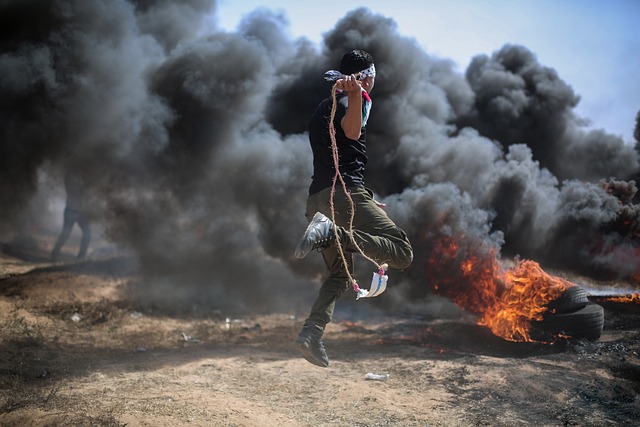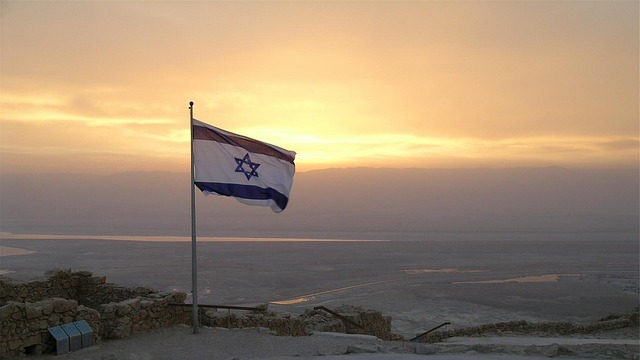US could send ground troops if Iran kills large number of American troops, analysts warn
The U.S. could be forced to commit ground troops to fight Hamas if Iranian-backed forces kill a sufficient number of American military personnel stationed in the Middle East, according to several foreign policy analysts who are monitoring the crisis.
“If one of the pro-Iranian Iraqi militias or other proxies causes a significant number of casualties to U.S. forces, this could force the U.S. to reply in a forceful manner,” Joshua Krasna, Director, Center for Emerging Energy Politics in the Middle East at the Foreign Policy Research Institute (FPRI), told Baltimore Post-Examiner. “Also, whipping up the Muslim street can cause attacks on US nationals or facilities, which the US could decide it could not stand. I still don’t see this leading to a broad war between the two countries, rather than limited strikes followed by Iranian forbearance.”
Iranian proxies have attacked U.S. troops in the Middle East 48 times since Oct. 17. The Israel-Hamas war on began on Oct. 7, following a massive terrorist attack on Israeli civilians.
Fifty-six U.S. personnel stationed at bases in Iraq and Syria have been injured over the past month by drone and rocket attacks launched by Iranian-backed militias, according to news reports.
The U.S. has since late-October retaliated with multiple airstrikes against Iranian-backed targets in eastern Syria.
The U.S. has taken concrete steps to try and prevent Iran from entering the conflict, which has claimed the lives of more than 1,200 Israelis and more than 10,000 Palestinians. They include sending strike carriers to the Mediterranean and Red Seas and shooting down Iranian rockets fired from Yemen that were believed to be headed toward Israel.

As Palestinian casualties in Gaza mount and calls for a cease-fire become louder, Iran has become even more aggressive with its rhetoric and has warned that it has not ruled out entering the conflict. Israel has agreed to daily four-hour bombing pauses for humanitarian purposes.
Daniel Pipes, who is president of the Middle East Forum, said that while it is possible that the U.S. could get dragged into the Israel-Hamas war-such a scenario is rather unlikely.
“The Israel-Hamas war indisputably increases the possibility of a larger conflagration, one that conceivably could involve the United States fighting Iran. That said, this appears to be highly unlikely. The Iranian government has no wish to take on U.S. forces in a conventional battle. Rather, it uses proxies to attack Americans, American interests, and American troops. Indeed, they already do so, especially in Syria.”
Michael Rubin, a senior fellow at the American Enterprise Institute (AEI), who specializes in the Middle East, cautioned that a prolonged cease-fire in Gaza would make Iran even more belligerent and even more vicious in its attacks against U.S. forces.
“Already, Iran is increasing the frequency of attacks on American personnel in the region. Perhaps the White House can deflect action since only a few contractors have died and a few dozen American soldiers were injured. But then relatively low numbers of casualties may be more due to luck than Iranian design. If an Iranian drone or missile hits an American dining facility or some other structure where dozens of soldiers are gathered, the action may be so great that there will be no stepping back from a conflict. This is why establishing redlines is so important.”
What would a redline look like?
“A direct attack on US forces, nationals, or facilities. I think the Iranian proxy which has the greatest potential to draw both the US and Israel into strikes on Iranian targets, is the Houthis,” Krasna said.
Pipes largely agreed.
“The red ine likely involves multiple American deaths.”
Rubin said President Joe Biden has “avoided setting a redline,” and that that is a “mistake.”
“Iran will keep pushing until someone pushes back. It behooves the United States to push back sooner and signal no attack on US personnel will ever be tolerated. I’m afraid that it will take the deaths of dozens of Americans in an Iranian lucky strike to get Biden to react. Simply attacking minor outposts in Syria won’t do the trick. It’s time to go after the Revolutionary Guards in the Persian Gulf or elsewhere. Don’t want to attack Iran? I get that. Perhaps instead go after IRGC cells outside Iran’s borders.”
What would the U.S. do if Iran attacks Israel?

“The US would use its air defense capabilities to help protect Israel, as it did when the USS Carney intercepted missiles/drones from Yemen,” Krasna said. “It might also provide Israel with intelligence and other support – such as refueling – if Israeli aircraft or other forces respond on Iranian territory. It would provide a strong warning, especially if the attack is attributable, such as missiles fired from Iranian soil, and then might respond militarily (strike directly relevant targets) if the attack persists. And of course, the possibility of covert and cyber operations against Iranian and proxy targets, which I imagine could already be occurring.”
Pipes agreed.
“Again, this is unlikely as the Iranians also do not want to fight Israel in a conventional or even a nuclear war. But, if it did happen and Israeli forces faltered, I can imagine emergency help to Israel from the United States.”
Rubin stressed that U.S. support for Israel would be limited to providing weapons assistance.
“Ultimately, not much. We’d give Israel some resupply, but no American boots will be on the ground. Indeed, the question is what the United States shouldn’t do. If Iran attacks Israel directly, the US should pledge not to interfere with Israel’s ability to strike back.”

Bryan is an award-winning political journalist who has extensive experience covering Congress and Maryland state government.
His work includes coverage of the election of Donald Trump, the confirmation hearings of Supreme Court Justice Brett Kavanaugh and attorneys general William Barr and Jeff Sessions-as well as that of the Maryland General Assembly, Gov. Larry Hogan, and the COVID-19 pandemic.
Bryan has broken stories involving athletic and sexual assault scandals with the Baltimore Post-Examiner.
His original UMBC investigation gained international attention, was featured in People Magazine and he was interviewed by ABC’s “Good Morning America” and local radio stations. Bryan broke subsequent stories documenting UMBC’s omission of a sexual assault on their daily crime log and a federal investigation related to the university’s handling of an alleged sexual assault.

